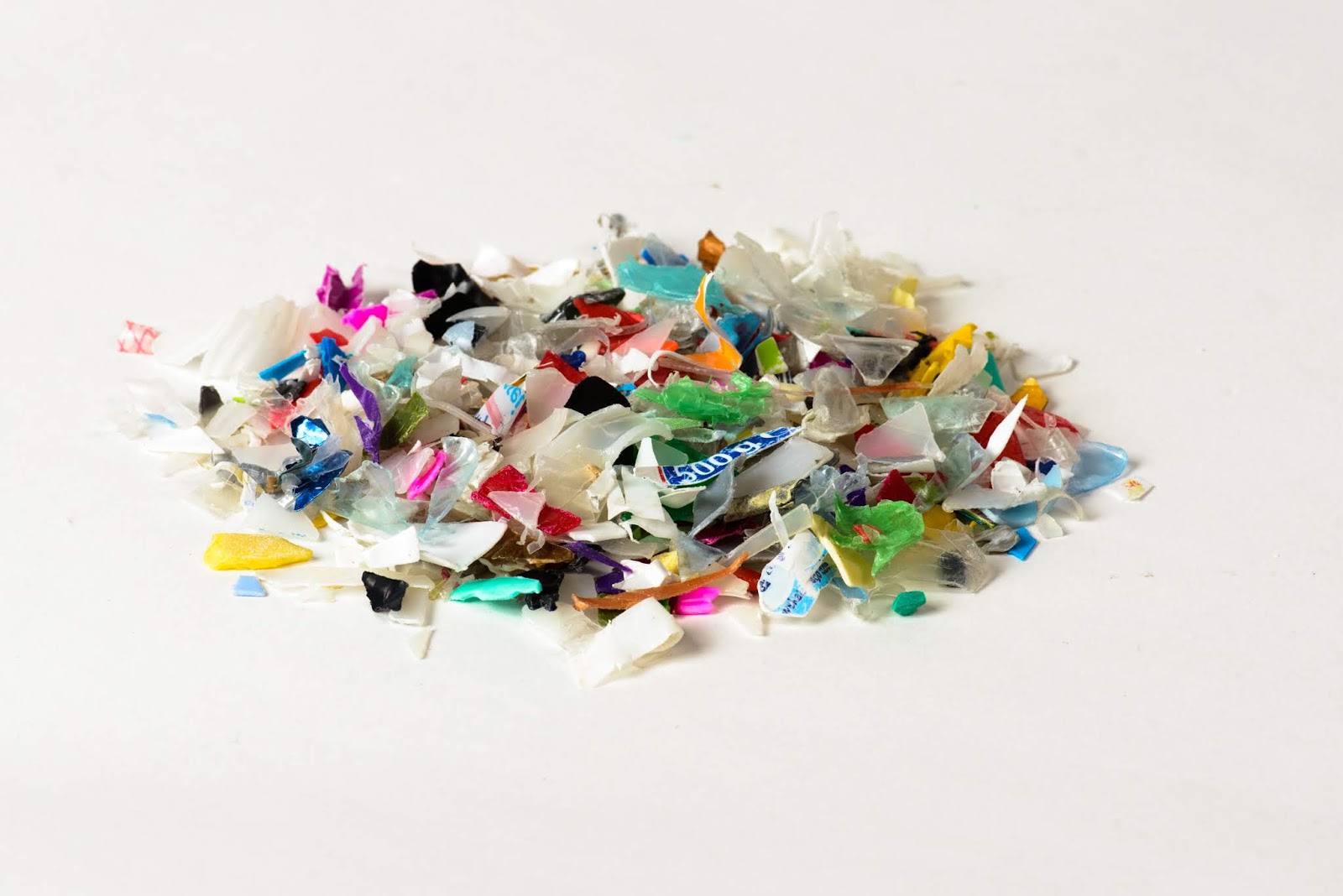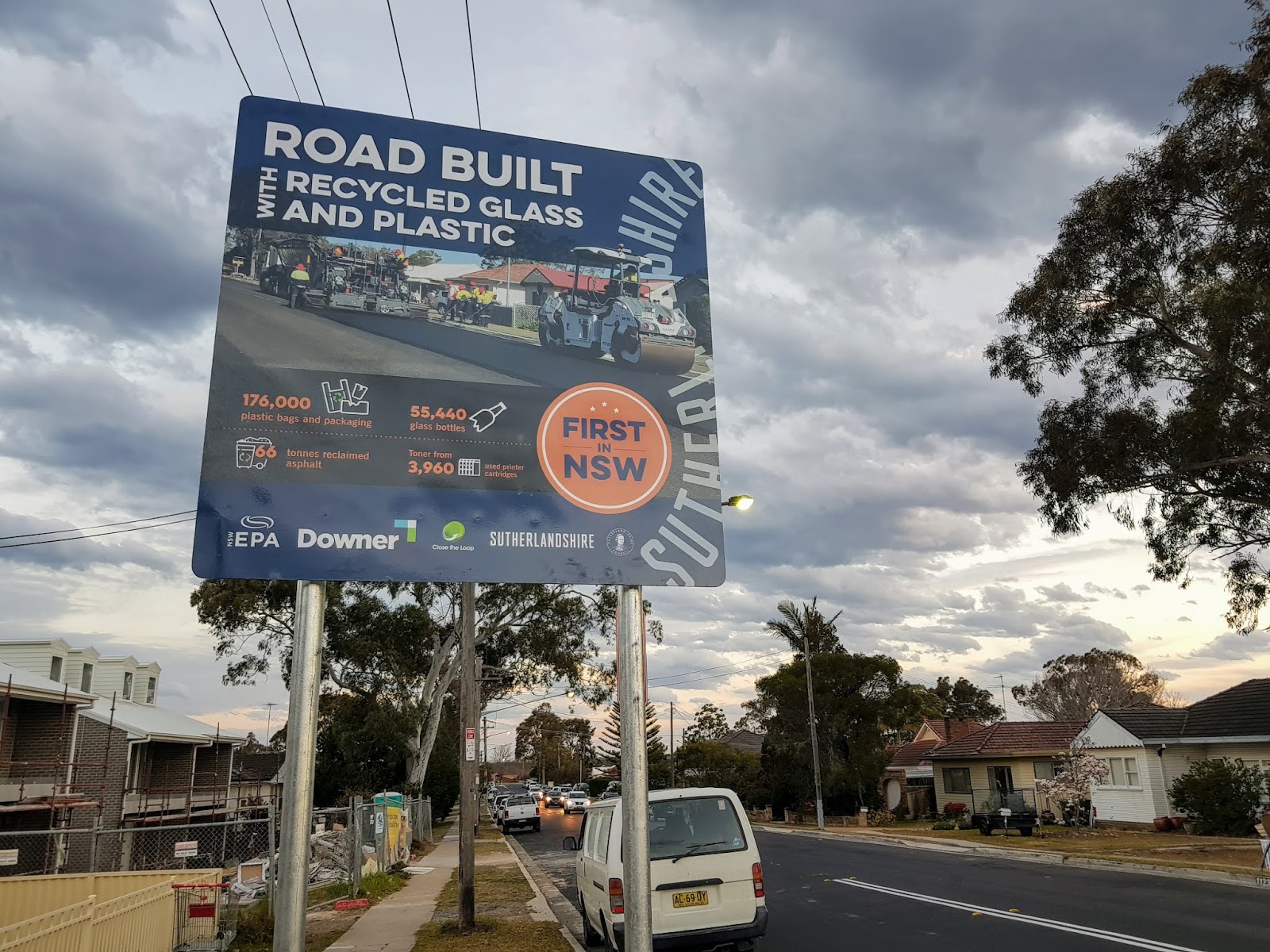In this article, we explain what is plastic roads, construction procedures, objectives, advantages, and disadvantages of plastic road.
Table of Contents
Introduction
Plastic is a big problem in our country and world. But plastic is the only material which has high daily uses for the basic purpose of every person life.
Like the use of plastic in transport any material, protect from water, for covering of any substance, for the store of material, for use as an insulating material and other purposes.
Therefore we say plastic is very useful and we use it every day. But due to use and throw of plastic is causing a big problem of our planet. It’s thought more than five trillion pieces of plastic are in the world’s oceans and it can take years for it to break down.
But isn’t biodegradable, due to this property of plastic create so many problems on our earth. Increasing of greenhouse gas effect. Due to its, increasing land pollution, air pollution, groundwater pollution, due to its, hurt of animals and etc.
Due to its Poisson property, all cycles of the environment are affected. Therefore the decreasing plastic use and recycle of it is very important.
Prof Rajagopalan Vasudevan is a plastic man of India. His innovative thoughts are to try to reduce plastic and recycle it. Which is very helpful for our environment. Prof Rajagopalan Vasudevan is a chemistry professor at Thiagarajar College Of Engineering, Madurai.
This man constructs a road by using plastic waste. This road is known as plastic road. The plastic waste items that can be used for road construction are various items like plastic carry bags, plastic cups, plastic packaging for potato chips, biscuits, chocolates, etc.
Also Read: Tuned mass damper – Purpose | Case study of Taipei
What is Plastic Road
Plastic roads are made entirely of plastic or of composites of plastic with other materials. Plastic roads are different from standard roads in the respect that standard roads are made from asphalt concrete, which consists of mineral aggregates and asphalt.

Currently, there are no records of regular roads made purely of plastic. Plastic composite roads, however, have existed and demonstrate characteristics superior to regular asphalt concrete roads; specifically, they show better wear resistance.
The implementation of plastics inroads also opens a new option for recycling post-consumer plastics. Australia, Indonesia, India, the United Kingdom, the United States, and many other countries have used technology that can incorporate plastic waste into an asphalt mix.
The plastic waste items that can be used for road construction are various items like plastic carry bags, plastic cups, plastic packaging for potato chips, biscuits, chocolates, etc.
Also Read: What is Steel Slag Road Technology
Plastic road construction process
the various steps of plastic road construction are listed below.
- Collecting waste plastics, including plastic carry bags, cups, soft and hard foams, and laminated plastics.
- Cleaning it by washing.
- Shredding it to a uniform size.
- Melting the waste plastics at 165°C, and blending them with hot aggregates and bitumen, and using this mixture to lay the road.

The entire process is very simple. The plastic waste material is first shredded into small pieces using a shredding machine.
Then, the aggregate mix is heated at 165°c and transferred to the mixing chamber, and the bitumen is heated to 160°c to result in a good binding.
It is important to monitor the temperature during heating.
The shredded plastic waste is then added to the aggregate. It gets coated uniformly over the aggregate within 30 to 60 seconds, giving an oily look.
The plastic waste coated aggregate is mixed with hot bitumen and the resulting mix is used for road construction. The road laying temperature is between 110°c to 120°c.
The roller used has a capacity of 8 tons.
Also Read: What is Monolithic Construction Technology | Advantages
Comparison Between Ordinary and Waste Plastic Bituminous Road
| Sr.no | Properties | Plastic Roads | Ordinary Road |
|---|---|---|---|
| 1 | Marshall Stability Value | More | Less |
| 2 | Binding Property | Better | Good |
| 3 | Softening Point | Less | More |
| 4 | Penetration Value | More | Less |
| 5 | Tensile Strength | High | Less |
| 6 | Rutting | Less | More |
| 7 | Seepage Of Water | No | Yes |
| 8 | Durability Of The Roads | Better | Good |
| 9 | Pot holes | No | More |
Objectives of Plastic Road

- The primary objective of plastic roads is to reduce plastic waste, bags, bottles, etc. Not all plastic waste is recycled, as even the recyclable waste is just too much to reuse 100%. But bituminous roads are continuously being built and can incorporate extremely large quantities of plastic waste. Saving in cost is a bonus.
- The expected lifetime of the plastic road is two to three times as long as that of traditional road paving.
- The expected construction time of a new road will be reduced by approximately 70%.
- The plastic road is four times as light in weight compare to traditional road structures.
- The plastic road is 100% circular and is made from recycled plastic as much as possible.
Also Read: What is Cofferdam | Different Types of Cofferdam | Its Uses
Advantages of Plastic Road
- This road construction process is extremely eco-friendly, with no toxic gases being released.
- This process has generated an additional job for rag pickers.
- Plastic waste helps increase the strength of the road, reducing road fatigue.
- These roads have better resistance towards rainwater and cold weather.
- Since a large amount of plastic waste is required for a small stretch of road, the amount of waste plastic strewn around will definitely reduce.
- A lightweight prefabricated construction.
- Faster construction and less maintenance time.
- Higher quality and a longer lifespan.
- Little to no maintenance required. The material is virtually impervious to conditions such as the weather and weeds.
- The innovation is considerably more sustainable.
- Double use of space. The hollow space in the design can be used to store water or as space for cables and pipes.
- The possibility of constant safety and water drainage
- Everything on and around the road can be prefabricate
- Contribution to the social problem of plastic waste.
Disadvantage Of Plastic Road
- Toxic present in the co-mingled plastic wastes would start leaching.
- But the presence of chlorine will definitely release HCL gas.
Plastic Road in India
Chennai was among the first cities globally to adapt the technology in a big way when the municipality commissioned 1000km of plastic roads in 2004. Since then all major municipalities in India have experimented with the technology including Pune, Mumbai, Surat, Indore, Delhi, Lucknow etc.

Chennai: While plastic roads may be a new concept in many parts of India, Chennai has been experimenting with it since 2011. Chennai has used nearly 1,600 tonnes of plastic waste to construct 1,035.23 kilometers length of roads in recent years, which include N.S.C Bose road, Halls road, Ethiraj Silai Street, and Sardar Patel Street.
Pune: Using bitumen technology on waste plastic, the Pune Municipal Corporation constructed a 150-meter stretch of Bhagwat lane at Navi Peth near Vaikunth Crematorium in 2016. The other trial patches in Pune include Dattawadi Kaka Halwai Lane, Katraj Dairy, Magarpatta City HCMTR Road, Kavde Mala Road, Koregaon Park Lane No 3, and Yeravada Sadal Baba Darga Road from Chandrama Chowk.
Jamshedpur: Jamshedpur Utility and Services Company (JUSCO), which is a subsidiary company of Tata Steel, constructed a 12-15 kms road in the steel city as well as Tata Steel Works using plastic road, including a nearly 1km stretch in Ranchi, 500m stretch each in Dhurwa and Morabadi, 3km of roads in Chas and Jamtara each and 500m stretch in Giridih.
Indore: Dating 2014, the Madhya Pradesh Rural Road Development Authority (MPRRDA) has constructed around 35 km of roads in 17 districts with plastic waste.
Surat: The idea of using plastic-bitumen mix was executed in January 2017. The problem of potholes significantly reduced as no cracks developed in areas where roads were layered with waste plastic.
The technology has penetrated deeply and has found application even in far flung areas such as Meghalaya, where a village converted 430kgs of plastic waste into a kilometer long road in 2018.
Plastic Road PPT
REFERENCES
- https://madhavuniversity.edu.in
- https://www.thebetterindia.com
- https://www.plasticroad.euhttps://en.wikipedia.org/wiki/Plastic_roads

I am a Professional Civil & Structural Engineer having more than 4 years of experience in Engineering, Procurement and Construction industry. Here i sharing the latest updates of EPC Projects and Construction News.

